Pope speaks of Armenian 'genocide' in Yerevan visit
- Published
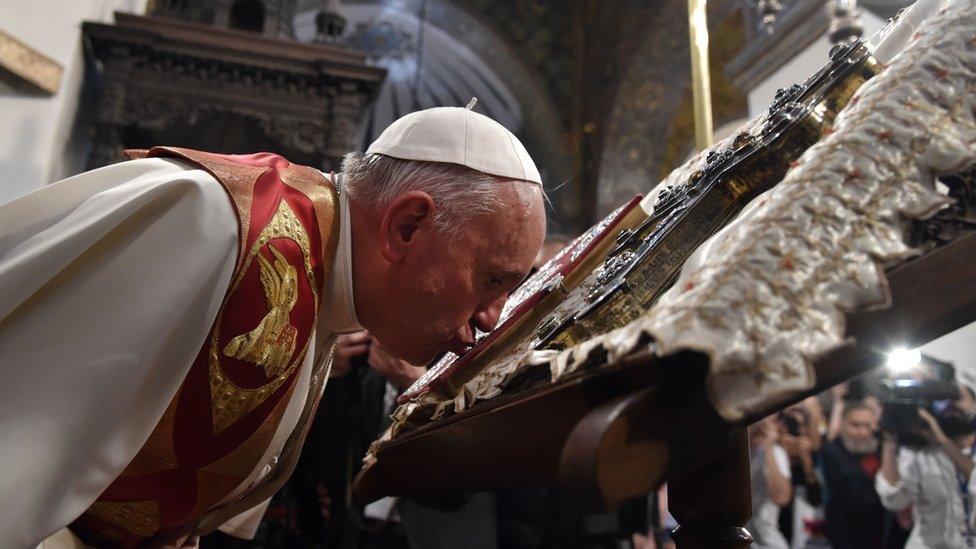
The Pope used the term "genocide" for the first time last year
Pope Francis has described the mass killing of Armenians under Ottoman Turkish rule in World War One as "genocide", repeating a phrase that prompted Turkish anger last year.
He made the remarks during a visit to the Armenian capital, Yerevan, for commemorations of the massacre.
Armenia and many historians say up to 1.5 million Armenian Christians were killed by Ottoman forces in 1915.
Turkey has always disputed that figure and rejects using the term "genocide".
It says the deaths were part of a civil conflict triggered by WW1.
The row over how to characterise the killings has continued to sour relations between Armenia and Turkey, as well as drawing in other countries such as Germany, whose parliament recently declared the killings to be genocide.
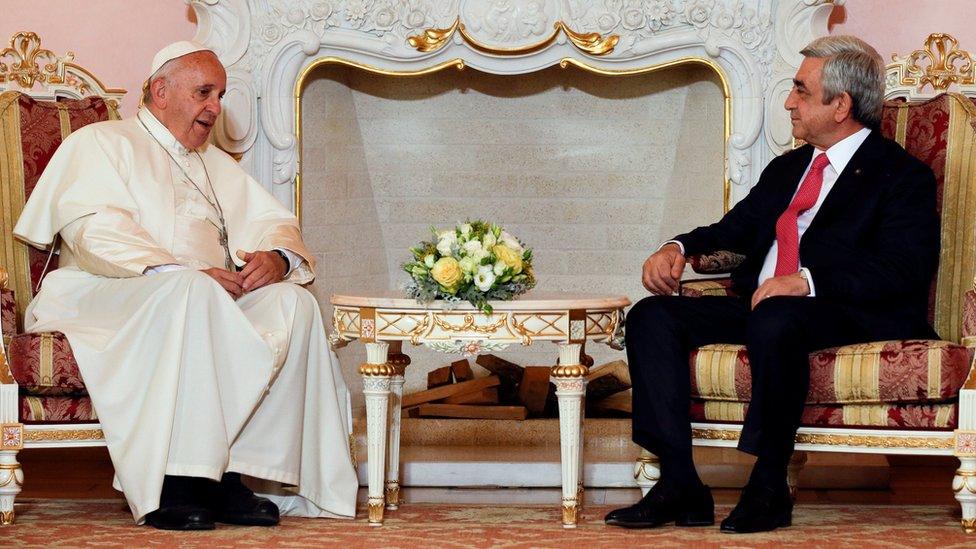
Pope Francis met President Sargsyan at the palace in Yerevan
In an address to Armenia's President Serzh Sargsyan and the diplomatic corps, the Pope appeared to have added the word "genocide" to his prepared text.
"This tragedy, this genocide, has unfortunately marked the start of a sad series of great catastrophes of the last century," he said.
He added that the killings were "made possible by twisted racial, ideological or religious aims that darkened the minds of the tormentors even to the point of planning the annihilation of entire peoples."
The remarks were met by a standing ovation.
"One cannot but believe in the triumph of justice when in 100 years... the message of justice is being conveyed to mankind from the heart of the Catholic world," President Sargsyan said.
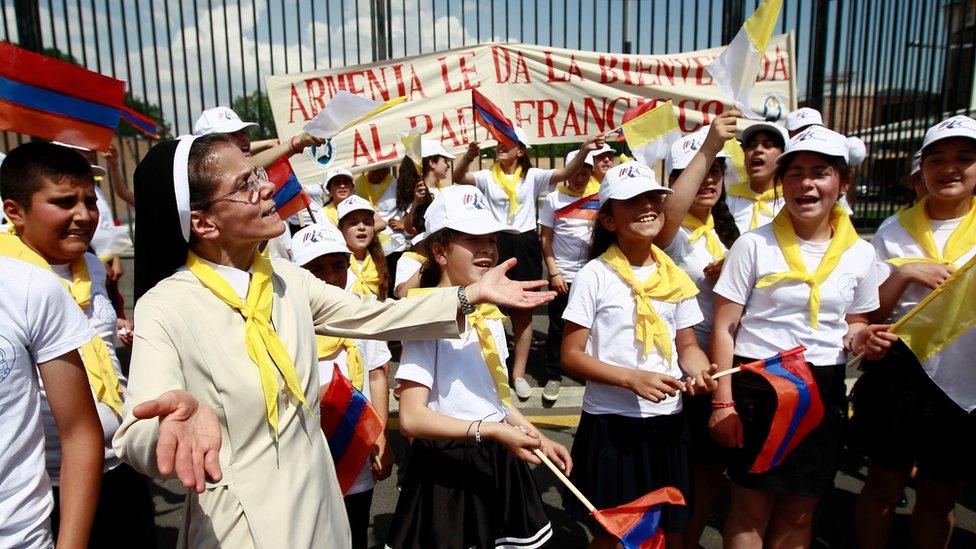
Students wearing the colours of the Vatican flag welcomed Pope Francis at the airport in Yerevan
There was no immediate reaction from Turkey, which last year recalled its envoy to the Vatican after the Pope referred to "genocide".
The envoy was kept away for 10 months.

War of words
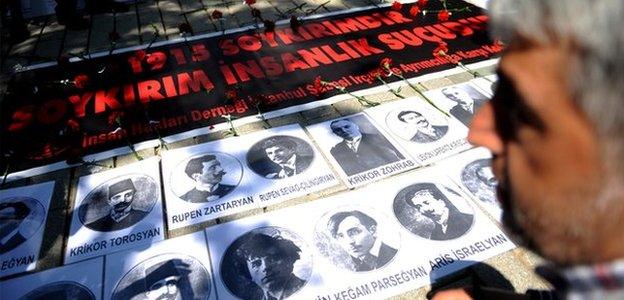
Turkey rejects the use of the term "genocide" to describe the 1915 mass killings of Armenians
In 2014, for the first time, Turkish Prime Minister Recep Tayyip Erdogan offered condolences to the grandchildren of all the Armenians who lost their lives.
But he also said that it was inadmissible for Armenia to turn the issue "into a matter of political conflict".
Armenia says up to 1.5 million people died in 1915-16 as the Ottoman Empire was disintegrating. Turkey has said the number of deaths was much smaller.
Many of the victims were civilians deported en masse to barren desert regions where they died of starvation and thirst. Thousands also died in massacres.
Most non-Turkish scholars of the events regard them as genocide. Among the other states which formally recognise them as genocide are Argentina, Belgium, Canada, France, Italy, Russia and Uruguay.
Turkey maintains that many of the dead were killed in clashes during WW1, and that ethnic Turks also suffered in the conflict.
- Published24 April 2021
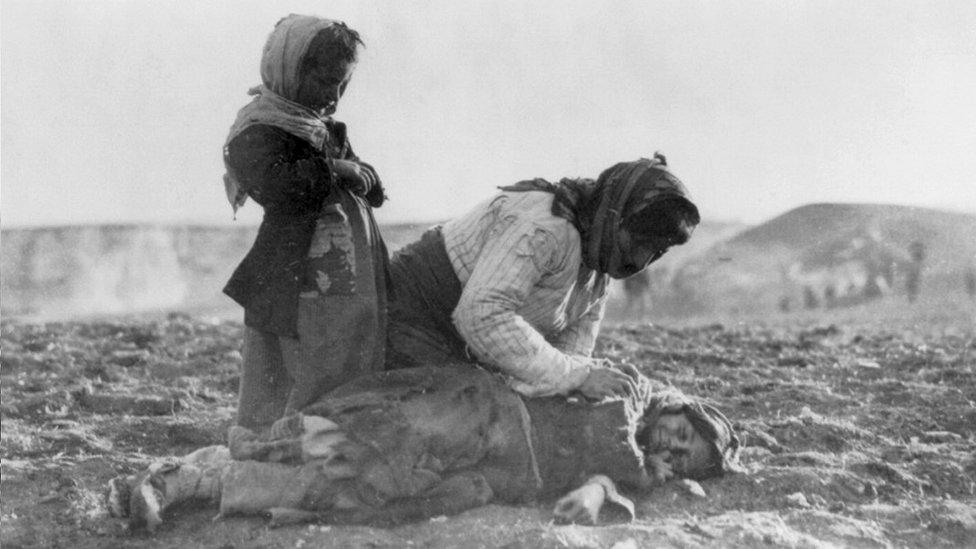
- Published30 January 2024
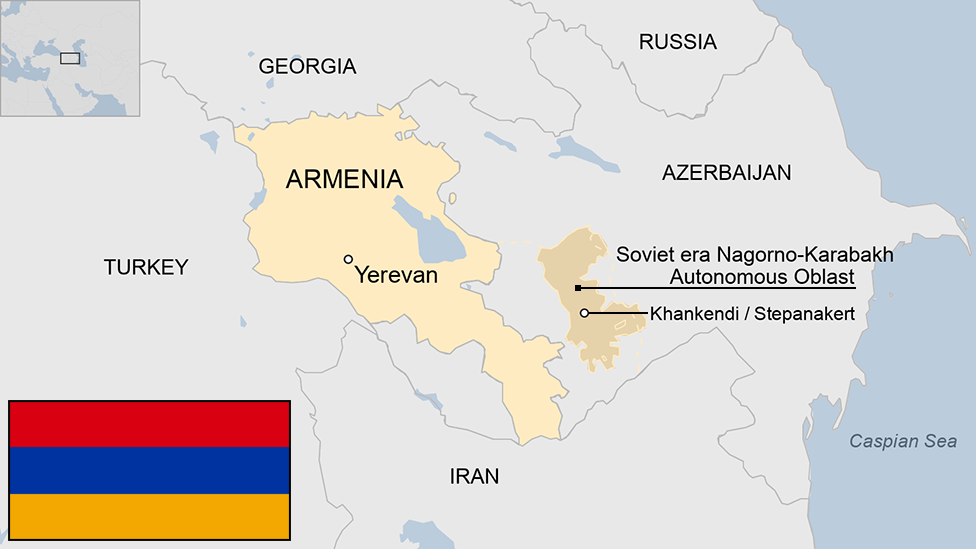
- Published14 December 2022